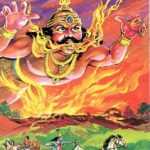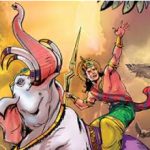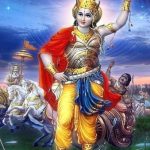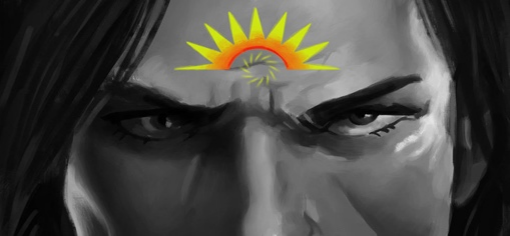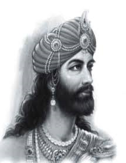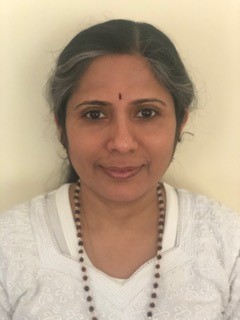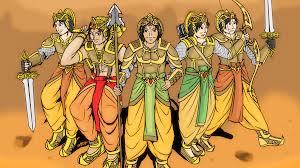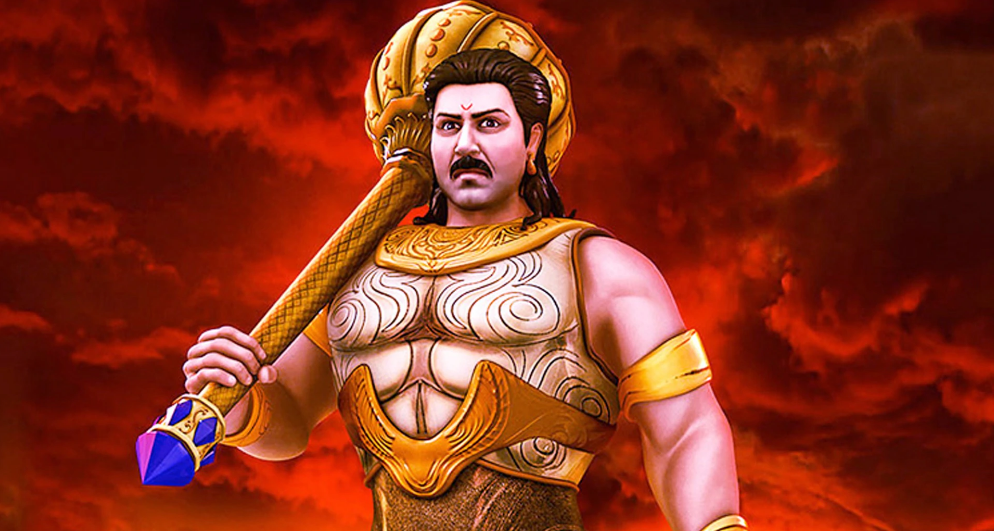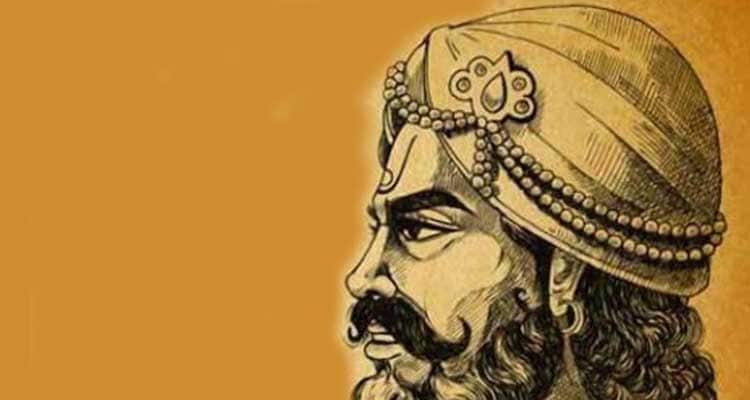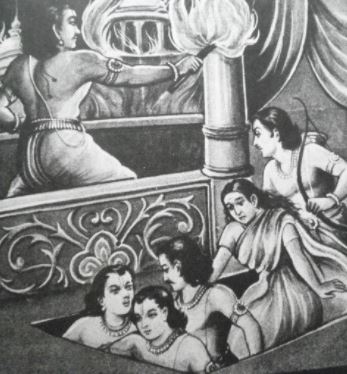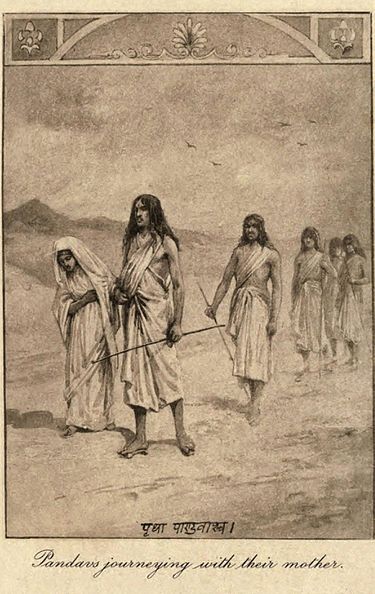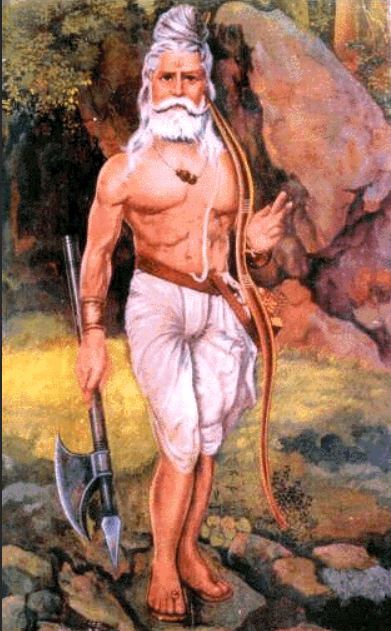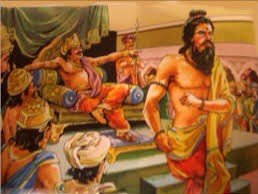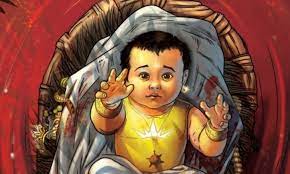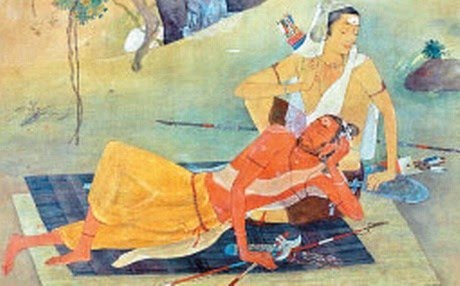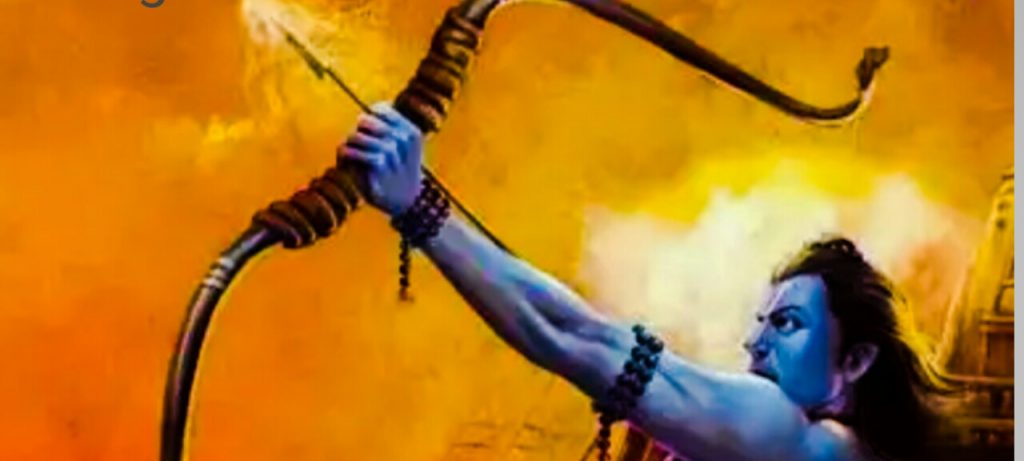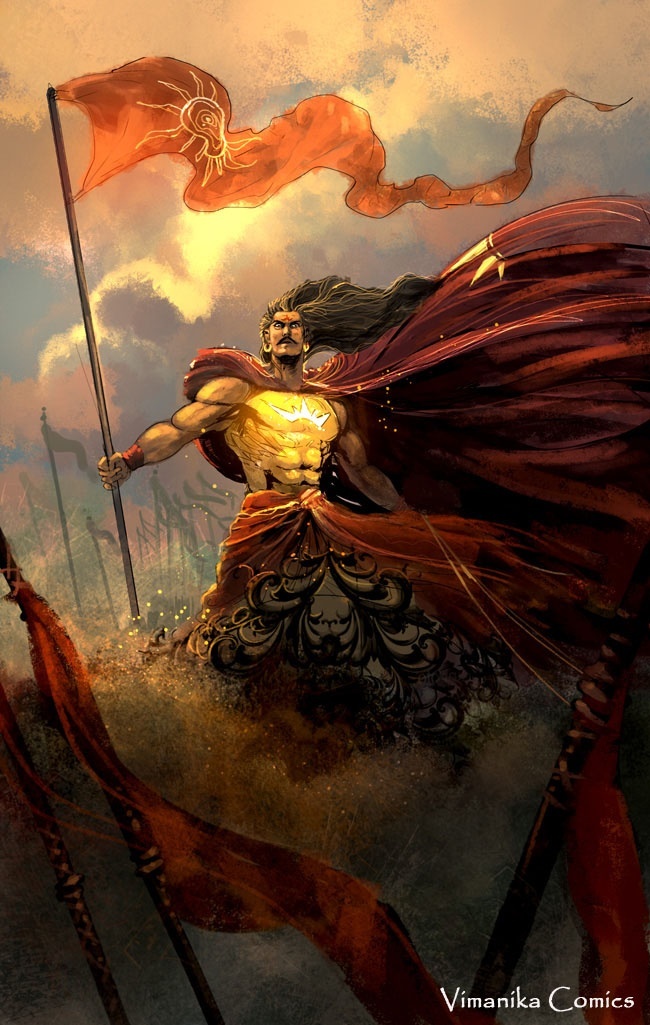By Nirooshitha Sethuram
Graphics by Sheralee (Shambhavi) Hancherow
Only a few who lived in the Khandava forest escaped the fire. Among them were the four Saranga birds. They lived with their mother bird, Jarita. Her husband had left her for another female bird. The male bird was a sage named Mandapala. He had to come back from the heavens to fulfill the karma of having children in order to stay in the heavens. He had to experience a married life and have offspring, therefore he had to be born again. Eager to return to the heavens, he chose to be born as a Saranga bird so that he could have many children and complete his karma within a short time. Once the eggs were laid by Jarita, even before his offspring were born, he left her for another female named Lapita.
When the fire began the four nestlings panicked at first. The older nestling urged their mother to leave them so she could save herself from the fire and maybe have more children. The elder nestling said, “Mother, if you are killed, we will not have any children for our family. Further we will not have anyone to look after us. Do what is right to protect our race without being influenced by affection only to us, which would be the destruction for all of us.” Jarita was taken by the wise advice from the older nestling. Taking the advice, she decided to protect the nestlings in the best possible way she could. She was putting them into the hollow of a tree so she could seal its mouth with mud before flying to safety. But the nestlings refused. Unable to convince them, the mother flew away, leaving them in God’s hands.
The nestlings prayed to Agni, the God of fire, not to harm them by singing his praise. Agni was pleased with their prayers and kept them safe from his flames. They survived the fire. When Jarita returned to check on them, she was so pleased to see them alive and well. In the meantime, Mandapala, the male bird who became worried about his offspring, wanted to return to see them. This made Lapita, the bird he had left his family for, furious. Ignoring her, Mandapala flew back to the forest and found his offspring unharmed and safe with their mother Jarita, thus realizing that he was not needed anymore.
The splendid new city of Indraprastha sprung up from the ashes, where once Khandavaprastha stood, by the grace of Krishna and the great work of the Divine architect Vishwakarma. Along with Krishna, the Pandavas were delighted to see the city being built in such a short time. Indraprastha was glittering with glamour. Soon they performed the inauguration ceremony of the palace by doing the relevant rituals and pujas. The five Pandavas began living in the magnificent palace. It took them a while to get familiar with the work of the Deva architect Vishwakarma and the illusion artist, the Asuric architect Mayasura. Just figuring out where the floors, walls, doors, windows and water ponds were was a lot to learn. The palace was mind boggling. The city of Indraprastha soon excelled the grandness of Hastinapura.
The Pandavas ruled Indraprastha with their cousin Krishna as their advisor and guide. One day Sage Narada came to visit the Pandavas. He had come with a purpose, as always, this time to explain that they must not fight over Draupadi, with her being the common bride. So he told them a story. The story was about Sunda and Upasunda, the two powerful demons who loved each other dearly. To get the boon of unconquerable power they went to the Vindhya mountain range to perform severe penance. Delighted with their penance, Brahma appeared and asked what they wanted. The brothers knew what exactly they wanted. They asked for strength, mastery over all weapons, ability to create illusions, take any form and, of course, immortality. Brahma gave them everything except immortality. And he told them to ask for something else instead of immortality. They thought for a while and asked that they could be killed only by each other, as they were very sure of their friendship. As requested, the boon was granted by Brahma.
The undefeatable brothers not only defeated the mighty Devas, but also terrorized all three words. The Devas devised a plan, sending a beautiful maiden Tilottama to disrupt the friendship. She tempted the brothers and made them fall in love with her. Sunda and Upasunda fought over her ferociously and killed each other. After hearing the story from Sage Narada, the Pandavas decided that each one would spend a month with Draupadi while none of the other brothers would intrude during that time frame. If any of them violated the arrangement that person would willingly go into exile for 12 years.
One day a brahmin came weeping intensely to the palace. He complained that his cows had been stolen by thieves. He came seeking help from King Yudhishtra for the restoration of his cows. Arjuna consoled the brahmin, promising that his cows would soon be returned to him. Arjuna decided to take matters into his hands and to go after the thieves to help the brahmin. But he realized he had left his bow and arrows in Draupadi’s bed chamber. It was his older brother Yudhishthira’s turn to be with Draupadi.
Arjuna now had to make a decision. He didn’t want the brahmin to curse his brother, the king, due to not getting help. But on the other hand, he had to violate the arrangement with his brothers by going to Draupadi’s chamber when he is not supposed to go there. Arjuna was caught in a dilemma. Finally, he chose to violate the agreement and prepared to be exiled in order to restore the brahmin’s cows. Arjuna chose to put his duty first, knowing that it would cost him banishment so he went into Draupadi’s chamber to get his bow and arrows. After restoring the brahmin’s cows, Arjuna went directly to his brother. After offering his respects, he conveyed his guilt of violating the arrangement and his plan to go into exile. He humbly sought Yudhishthira’s permission to go into exile.
After listening to Arjuna, Yudhishthira said, “Dear brother, you have not committed any violation at all. It would have been a violation only if you would have entered the palace for a personal reason. What you did was for a noble cause to perform a duty which was in fact mine. As you did this to protect your king and his subjects, I and my queen will not punish you.” But Arjuna has already made up his mind about exile. He reminded Yudhishthira that it was his teaching that one should not be dishonest at any circumstances. So, he begged for his brother’s permission to atone his sins. Hearing this Yudhishthira didn’t have any other choice other than to allow Arjuna to go into exile.
A few admirers of Arjuna accompanied him to the forest. After journeying through dense forests and crossing several streams they finally arrived at the banks of the river Ganga. Arjuna spent most of his time during this exile in listening to religious discourses by sitting with scholarly brahmins and sages. Living a peaceful life, he was becoming more and more virtuous. All this made his face glow with the divine light.
One day a beautiful maiden, who happened to see him while performing a yaj~na, fell in love with him. His glowing face and muscular body made her madly in love with him so she made up her mind to marry him. This damsel is named Ulupi, the daughter of the Naga King Kauravya of the under waters of Ganga. The next day, when Arjuna went into the river for a ritual bath, the Naga princess Ulupi gripped him and pulled him into the river, taking him straight to her underwater kingdom, the abode of King Kauravya her father. Taken by her act Arjuna inquired about Ulupi. She revealed her lineage and admitted her love and desire to be his wife.
At first Arjuna declined her proposal, mentioning his celibacy on his pilgrimage. But he was convinced by Ulupi’s argument saying that his celibacy was limited only to Draupadi. Arjuna accepted her proposal and agreed to marry her. A son named Iravan was born to them. Arjuna then expressed his desire to go back to his companions. Pleased by Arjuna, Ulupi granted him a boon that from that point forward all water creatures would obey and protect him. He would remain unconquerable under water.
Arjuna returned to the shore and told his companions all about Ulupi and the Naga Kingdom. The rest of the group then returned home, leaving Arjuna to continue his journey alone as he wished.
More to come…
